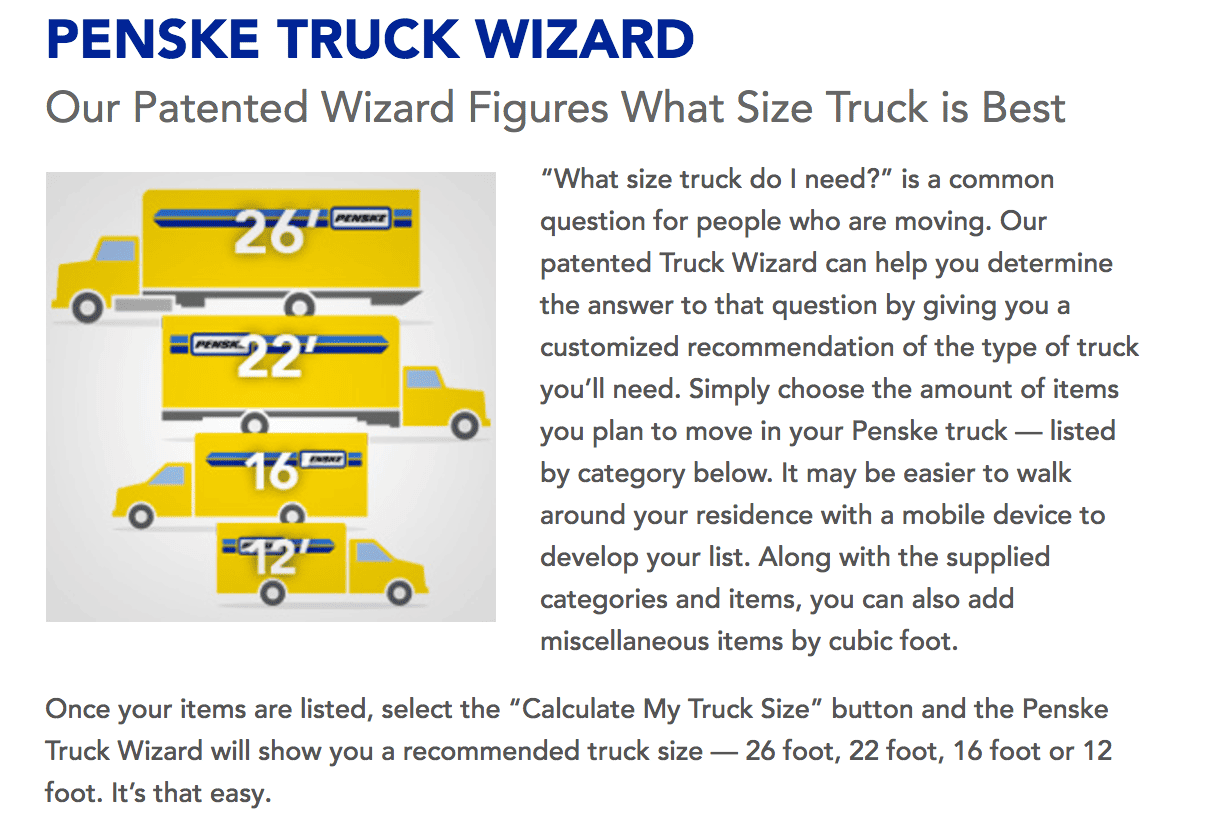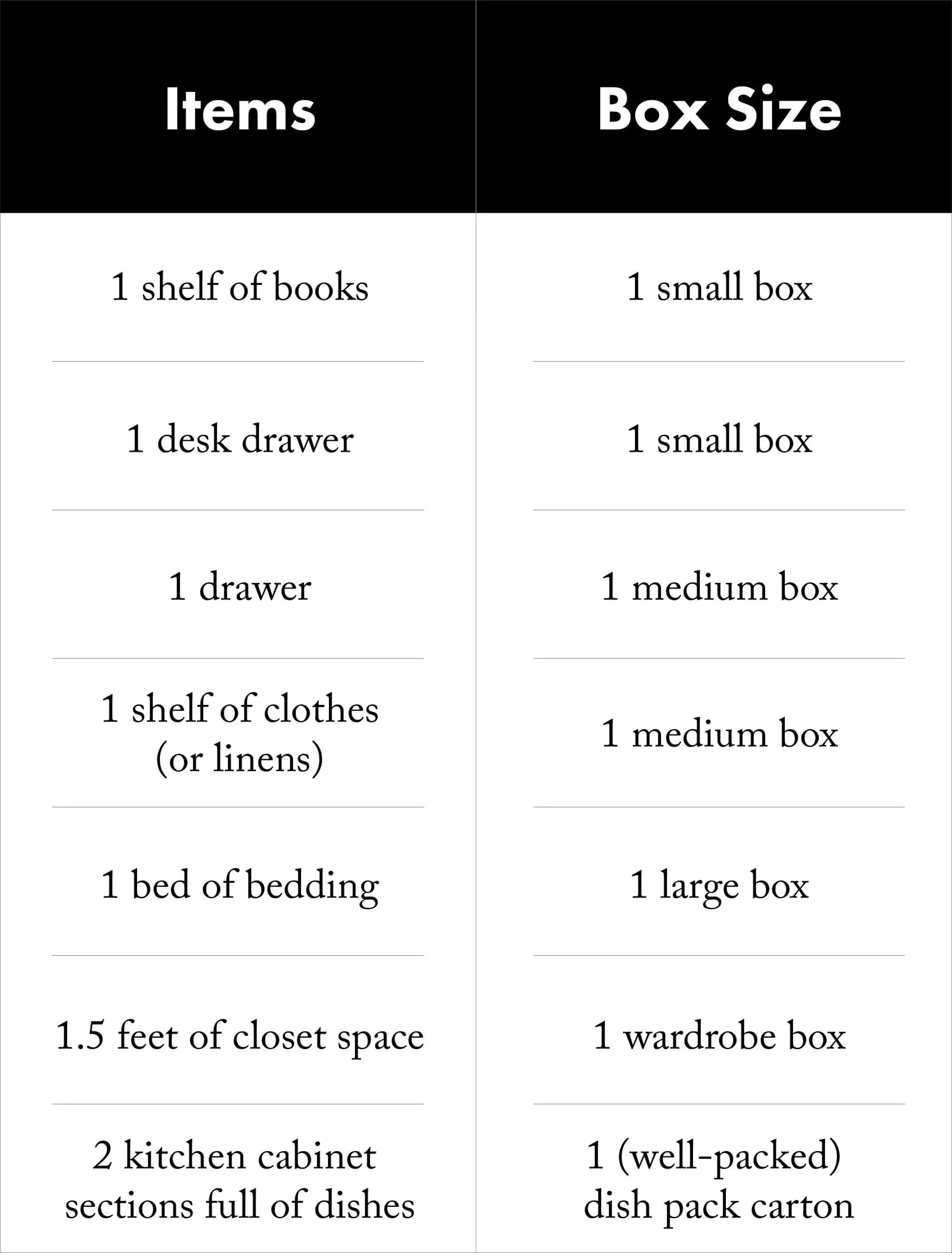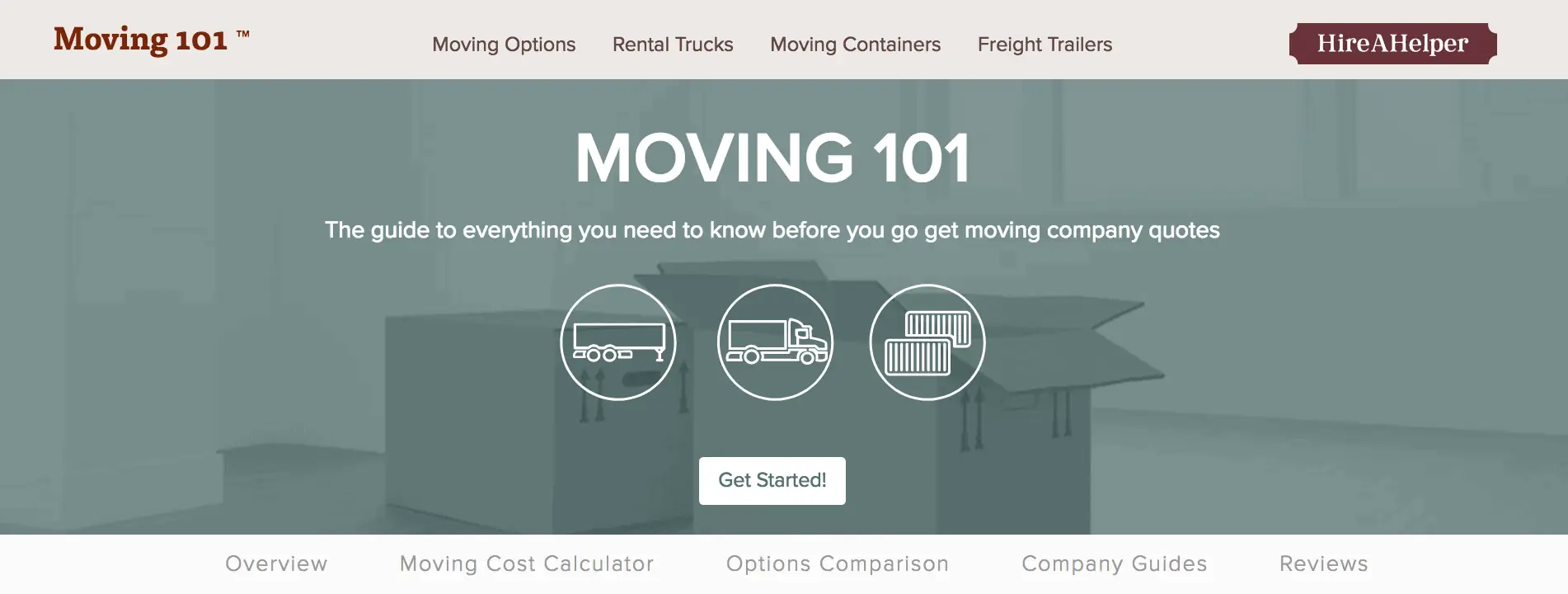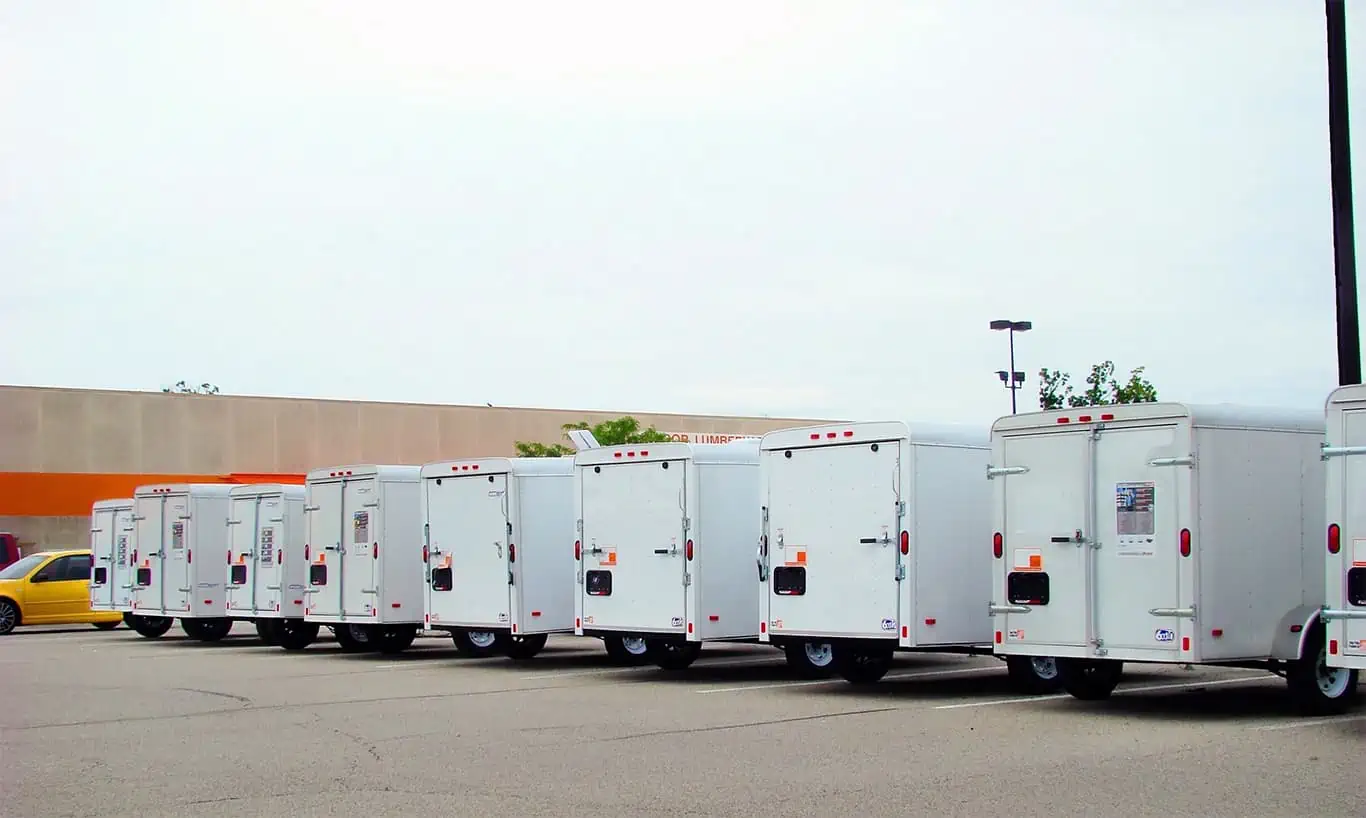At HireAHelper, we hear other people’s stories of bad movers all the time.
Whether these stories come to us through emails or from customers calling us after a moving company has wronged them, these same cries come up time and again: “All my stuff is missing,” or “All my stuff is damaged,” or even worse, “My movers are holding my stuff for ransom!”
There’s one word we always hear from these customers-turned-victims: “helpless”.
In these situations, it’s painfully clear: these movers aren’t playing by the rules. But what recourse do you actually have when your movers refuse to pay for damages, replace missing items, or opt to not deliver your stuff unless you fork over another thousand bucks?
Unprofessional movers get away with a lot of crap. That’s the unfortunate truth. But if you believe your movers have acted illegally and they aren’t taking responsibility, there are ways to fight back.
Here are four options you should immediately explore.
Alert your state’s Consumer Affairs Division.
Not only can investigators help you resolve your complaint about broken items or track down your stuff – or your movers – but they may also work with law enforcement authorities in getting unlicensed, unethical and illegal movers off the streets, just as they have in New Jersey. From New Jersey’s official website:
“Horror stories about predatory movers are all too common. By its very nature, the moving industry touches the lives of consumer when they are vulnerable and when they must rely on strangers to transport their valued possessions,” Acting Attorney General Hoffman said. “These situations create the potential for abuse. We are enforcing New Jersey’s licensing laws in order to protect consumers and, just as importantly, to ensure a level playing field for New Jersey’s many honest and licensed moving companies.”
Movers must usually be licensed with the state. (Here’s a list to check your’s.) If they are doing moves across state lines, they must additionally be licensed by the federal government. Cross-checking this with your Consumer Affairs Division is a quick way to begin the resolution process. Get ahold of Consumer Affairs Division in your state via this directory, which is a government-run database with the corresponding phone number, website and/or email address of your local division’s office.
See prices for local moving labor. Read real customer reviews. Easily book your help online.
If this was an interstate move, the Federal Motor Carrier Safety Administration (FMCSA) can also get involved. How they can help, along with the info and links you need, can be found on their Protect Your Move page. Their toll-free hotline is 1-888-368-7238.
Call your local police.

Just this year, Arizona passed House Bill 2145, which in Arizona requires moving companies to unload customers’ belongings in case of a dispute regarding payment on an intrastate move. We’d hope that this would be standard lawful procedure across the country, but sadly not all states are up to speed on this loophole.
But regardless of civil versus criminal matters, a mover being properly licensed is something the police can act on. Knowledge is power – but only if it is used!
Get in touch with MoveRescue.
This organization can assist you by obtaining information on your move, advising you as to your options and, in some hostage situations, working with the moving company to get your goods released. Plus, they’re vetted by United and Mayflower, two of the larger Full-Service moving companies in the industry.
From their website:
Approximately 1.6 million Americans hire interstate household goods movers each year. Unfortunately, a reported 3,000 cases of possible mover fraud occur annually. Many of these cases involve criminals who offer low estimates and then hold customers’ possessions hostage in undisclosed warehouses, demand thousands of dollars in additional payments and threaten auction. MoveRescue is devoted to ending this problem by seeing that moving companies abide by the federal consumer protection regulations.
Move Rescue does offer a disclaimer that they cannot offer immediate and complete assistance to everyone who calls. Call them anyway: 800-832-1773.
Contact your local news.

“Every day I don’t have my stuff, I can’t work, it’s put me farther and farther behind,” said Smith as she fought back tears.
Todd Ulrich contacted the Federal Motor Carrier Safety Administration that oversees interstate moves.
After federal regulators reviewed the company’s estimates, and the final bill, the agency took action. It ordered the company to honor the $1,200 estimate and return her belongings or face a possible $10,000 fine.
“They felt there was negligence, and generally they were out of compliance,” said Smith
A week later the mover released the storage unit address and key.
Smith took a huge step toward starting her new life in Winter Park.
“I don’t believe I would have gotten here this quickly without your intervention, so I appreciate it,” she said.
Understand that the process took weeks, not minutes. If you find yourself the victim of a bad bunch of movers, you may also need weeks, or even months, to get the situation resolved. So before you find yourself a victim, protect yourself by doing your homework on any moving company you contact. This list of recommendations by the Illinois Movers’ and Warehousemen’s Association covers everything you need to know and do before you hire a mover.
Or to likely avoid any of this …
It’s harder to tend to these issues after they’ve already happened, which is why we built HireAHelper around holding movers accountable from the get-go; movers on our national database live and die by their reviews. Our sister company Moving Place can also take care of planning and executing your whole long distance move at reasonable price and with every security protocol in place. We also work seven days a week to take care of any potential claims, or if something drastic happens, to find replacement movers as soon as possible (often for the same day).
Small claims court, calling the police or filing reports take a long time. Booking a vetted mover through a marketplace is much safer because even if something goes wrong, we work with you to fix it.
We believe it’s important to keep movers accountable, so you don’t have to.
As for opting to work directly with moving companies, you can help others from falling victim to the same irresponsible, illegal movers by writing an online review (which might more accurately be called an online warning), informing the Better Business Bureau of your situation, and filing a complaint with your state authorities as well as the FMCSA. These governmental agencies don’t usually have the resources to go after every moving company that pulls a fast one (sad but true), but if the complaints on a company start piling up there’s a chance that company will have the hammer of the law come down on them.
And that’s really all we want.
That, and getting all our stuff back, undamaged, on time and at cost. That shouldn’t be too much to ask.



 The most common answer you’ll hear or read is $10 per mover for a half day, $20 per mover for a full day.
The most common answer you’ll hear or read is $10 per mover for a half day, $20 per mover for a full day.  While it may be quicker and easier to hand your lead mover some cash and ask them to split it up among the crew, the sad truth is that the occasional unscrupulous leader will pocket the cash and tell the crew “Sorry, they stiffed us.” It’s probably quite rare, but it happens. (Never to me, I could say, but then again, how would I know?)
While it may be quicker and easier to hand your lead mover some cash and ask them to split it up among the crew, the sad truth is that the occasional unscrupulous leader will pocket the cash and tell the crew “Sorry, they stiffed us.” It’s probably quite rare, but it happens. (Never to me, I could say, but then again, how would I know?) The answer to this may seem obvious: At the end of the move! But once or twice I had a customer hand everyone on the crew a ten or a twenty before we got started and say “Take care of my stuff guys, okay?”
The answer to this may seem obvious: At the end of the move! But once or twice I had a customer hand everyone on the crew a ten or a twenty before we got started and say “Take care of my stuff guys, okay?”
 This is another question with no set answer. I can tell you, though, that pizza is like a tip: not necessary, but never turned down.
This is another question with no set answer. I can tell you, though, that pizza is like a tip: not necessary, but never turned down.







